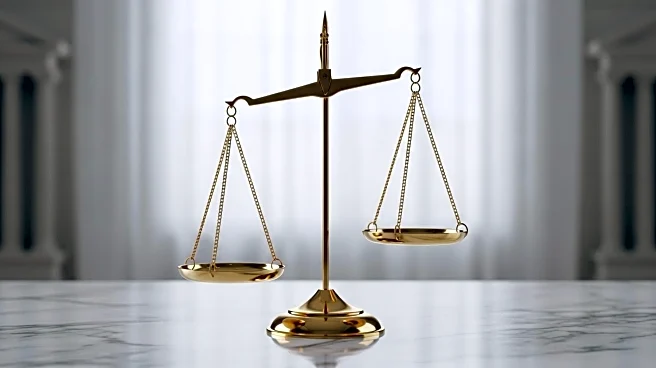What is the story about?
What's Happening?
Treasury Secretary Scott Bessent has expressed confidence that President Trump's tariff plan will be upheld by the Supreme Court. However, he warned that if the tariffs are struck down, the Treasury would be required to issue substantial refunds, potentially affecting half of the tariffs collected. The Trump administration has requested an expedited Supreme Court ruling to overturn an appeals court decision that deemed most of the tariffs illegal. The decision could take until next summer, and delaying it could result in significant financial disruption, with $750 billion to $1 trillion in tariffs already collected.
Why It's Important?
The potential overturning of Trump's tariffs by the Supreme Court could have major economic implications. Refunds of collected tariffs would impact the Treasury's financial stability and could disrupt trade relations. Businesses that have paid these tariffs may face uncertainty regarding future costs and pricing strategies. The decision also holds political significance, as it challenges the legality of Trump's trade policies. The outcome could influence future administrations' approaches to international trade and tariff implementation, affecting U.S. economic policy and global trade dynamics.
What's Next?
The Supreme Court's decision on the legality of Trump's tariffs is awaited, with potential implications for U.S. trade policy. If the tariffs are overturned, the Treasury will need to manage the financial impact of issuing refunds. Businesses and trade partners will be closely monitoring the situation, as it could affect international trade agreements and economic strategies. The ruling may also prompt legislative action to address tariff policies and ensure compliance with legal standards. Stakeholders in the business and political sectors will likely engage in discussions to navigate the potential changes.















